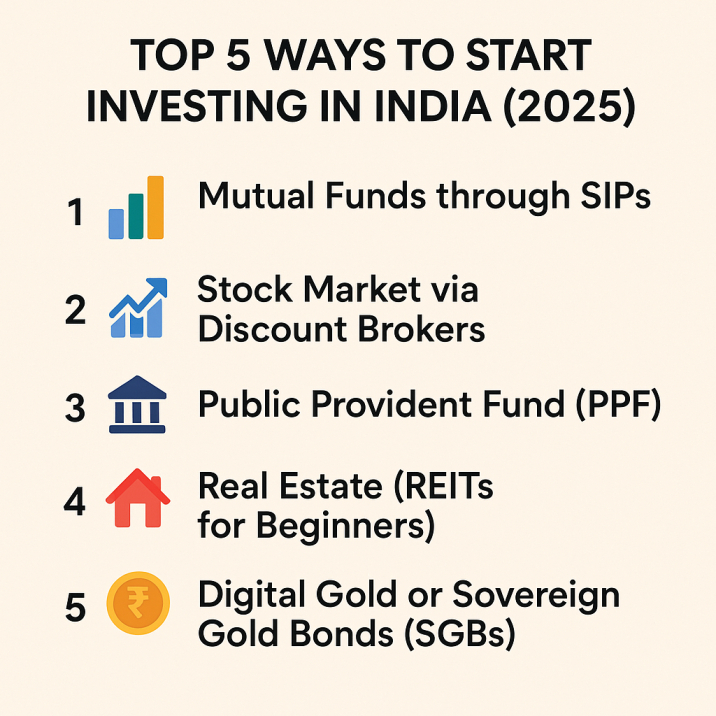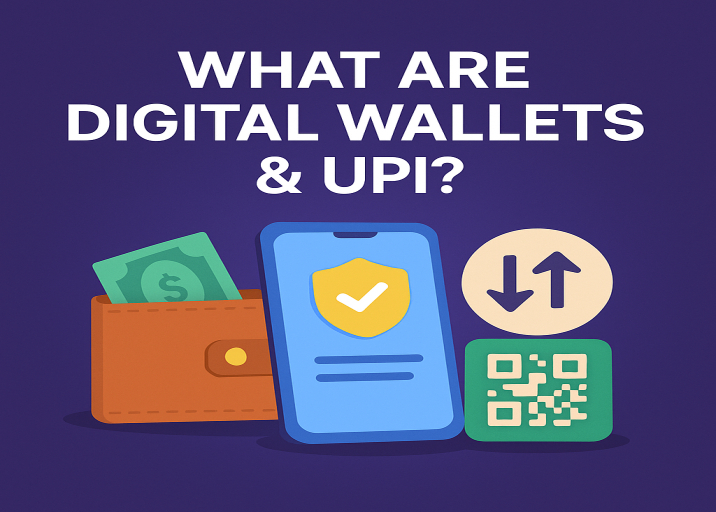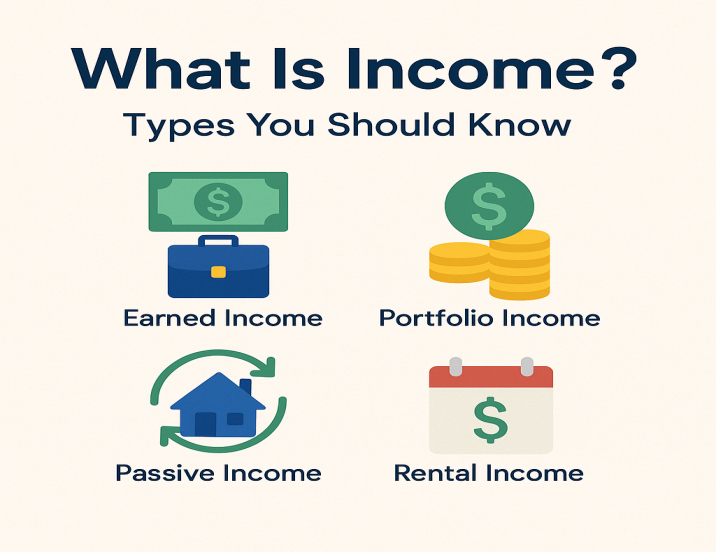Top 5 Best Ways to Start Investing in India – Beginner’s Guide, Full details 2025
Top 5 Best Ways to Start Investing in India – Beginner’s Guide, Full details 2025.
Top 5 Ways to Start Investing in India
If you’re just starting with investing, it might feel confusing to figure out the best place to begin. With so many options available, choosing the right path is crucial. Whether you are a student, salaried employee, or someone starting late, investing early can make a huge difference in your financial future.
Table of Contents
Here are the top 5 ways to start investing in India in 2025, especially curated for beginners:
1. Mutual Funds through SIPs (Systematic Investment Plans)
Why? It’s one of the easiest and safest entry points into investing.
- What It Is: A mutual fund pools money from many investors and invests in a mix of stocks, bonds, or other securities. SIP lets you invest small amounts regularly (as low as ₹500/month).
- Best For: Beginners who want to grow wealth without actively managing investments.
- Benefits: Diversification, professional management, and compounding returns.
- Platforms: Groww, Zerodha Coin, Paytm Money, ET Money.
Example: If you invest ₹2,000/month for 5 years in a mutual fund with 12% annual return, you can get approx. ₹1.62 lakh from ₹1.2 lakh invested.
2. Stock Market via Discount Brokers
Why? Offers high returns if done with knowledge and discipline.
- What It Is: Buying shares of companies listed on the NSE/BSE. When company value grows, your investment grows too.
- Best For: Young investors willing to learn and take some risk.
- Benefits: Ownership, high potential returns, and dividends.
- Platforms: Zerodha, Upstox, Angel One.
Tip: Start with blue-chip stocks like TCS, HDFC Bank, or Infosys and invest for the long term.
3. Public Provident Fund (PPF)
Why? Safe, government-backed, and great for long-term wealth building.
- What It Is: A 15-year savings-cum-tax saving instrument with a fixed interest rate (usually 7%–8% annually).
- Best For: Risk-averse investors and salaried individuals.
- Benefits: Tax-free returns, safe from market volatility, and compounding growth.
- Minimum Investment: ₹500/year; Maximum: ₹1.5 lakh/year.
Example: Investing ₹10,000/year for 15 years can give you around ₹3.2 lakh at maturity.

4. Real Estate (REITs for Beginners)
Why? Property remains a solid long-term investment; REITs make it easier.
- What It Is: Instead of buying land or flats, invest in Real Estate Investment Trusts (REITs) listed on the stock market.
- Best For: Those who want real estate exposure without huge capital.
- Benefits: Regular income (like rent), appreciation, and liquidity.
- Popular REITs: Embassy REIT, Brookfield REIT.
Minimum Investment: ₹5,000–₹10,000 via stock brokers.
5. Digital Gold or Sovereign Gold Bonds (SGBs)
Why? Gold has always been a trusted and reliable investment in India, especially during inflation.
- What It Is: Buy gold in digital form or invest in government-issued Sovereign Gold Bonds (SGBs) which also pay 2.5% annual interest.
- Best For: Those who want to diversify and hedge against market risk.
- Benefits: No making charges, safe, earns interest (SGBs).
- Where to Invest: Paytm, PhonePe, banks, RBI portal.
SGB Lock-in: 5–8 years; ideal for long-term investment.
Final Tips Before You Start
- Always set your financial goals first (buying a house, education, retirement).
- Don’t invest blindly — learn the basics or consult a financial advisor.
- Start small but stay consistent. Let compounding do the magic.
- Diversify Spread your money across different investments – never put everything in one place.
- Use trusted platforms and secure apps only.
Final Thoughts
Starting your investment journey in 2025 doesn’t have to be overwhelming. With just ₹500–₹1,000 a month, you can begin your wealth creation journey. Pick investments that match your financial goals and how much risk you’re comfortable taking.
Invest early, invest smart – and your future self will thank you.
Learn more about Finance
![]()



